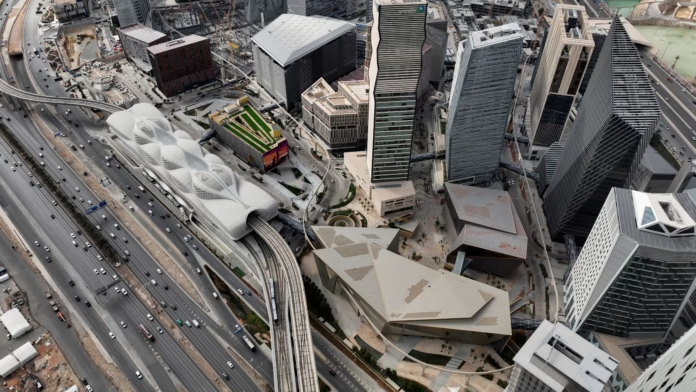Saudi Arabia non-oil growth surged as private-sector activity picked up speed. The Riyad Bank Purchasing Managers’ Index reached 57.8, marking the fastest improvement in six months. This increase from August’s 56.4 reflects growing business activity and higher new work inflows.
Any PMI reading above 50 indicates expansion, while a number below 50 signals contraction. Saudi Arabia’s non-oil growth outpaced regional peers, with the UAE and Kuwait recording 54.2 and 52.2, respectively. This performance demonstrates the Kingdom’s progress in diversifying its economy under Vision 2030.
Naif Al-Ghaith, chief economist at Riyad Bank, emphasized that business conditions improved across Saudi Arabia’s non-oil private sector. He noted that faster output growth and rising demand drove the strongest performance since March. Moreover, new business inflows rose sharply, supported by both domestic and export orders.
Private firms reported that successful advertising campaigns and stronger demand from the Gulf Cooperation Council region fueled new orders. Additionally, strong market conditions, customer acquisitions, and competitive pricing helped generate new work from international clients for the second month in a row.
Around 27 percent of survey participants experienced growth in business activity, while only 1 percent noted a decline. Employment continued to expand as firms hired staff to manage higher workloads and strengthen sales teams. Although hiring growth eased slightly, recruitment remained historically strong, which helped ease capacity pressures and stabilized backlogs.
Firms expressed optimism about future business, expecting higher demand, increased sales inquiries, successful marketing, and new client acquisitions. Input cost inflation remained above the series trend due to rising wages, supplier cost increases, and overall inflation. Meanwhile, selling charges increased moderately, reaching their lowest rate in four months as firms adjusted prices to stay competitive.
Overall, September’s data highlights a resilient non-oil private sector navigating cost pressures while benefiting from steady demand and employment growth. Input inflation easing and moderate selling charges position the economy well for the upcoming months.
The PMI survey collected data from approximately 400 private companies across manufacturing, construction, wholesale, retail, and services. The findings underscore Saudi Arabia non-oil growth as a key driver of economic diversification and private-sector resilience.
Saudi Arabia non-oil growth demonstrates strong business expansion, increased hiring, and rising new orders, reinforcing confidence in the country’s economic diversification.


